第66章 BOOK VII(1)
And now,assuming children of both sexes to have been born,it will be proper for us to consider,in the next place,their nurture and education;this cannot be left altogether unnoticed,and yet may be thought a subject fitted rather for precept and admonition than for law.In private life there are many little things,not always apparent,arising out of the pleasures and pains and desires of individuals,which run counter to the intention of the legislator,and make the characters of the citizens various and dissimilar:-this is an evil in states;for by reason of their smallness and frequent occurrence,there would be an unseemliness and want of propriety in making them penal by law;and if made penal,they are the destruction of the written law because mankind get the habit of frequently transgressing the law in small matters.The result is that you cannot legislate about them,and still less can you be silent.I speak somewhat darkly,but I shall endeavour also to bring my wares into the light of day,for I acknowledge that at present there is a want of clearness in what I am saying.
Cleinias.Very true.
Athenian.Stranger.Am I not right in maintaining that a good education is that which tends most,to the improvement of mind and body?
Cle.Undoubtedly.
Ath.And nothing can be plainer than that the fairest bodies are those which grow up from infancy in the best and straightest manner?
Cle.Certainly.
Ath.And do we not further observe that the first shoot of every living thing is by far the greatest and fullest?Many will even contend that a man at twenty-five does not reach twice the height which he attained at five.
Cle.True.
Ath.Well,and is not rapid growth without proper and abundant exercise the source endless evils in the body?
Cle.Yes.
Ath.And the body should have the most exercise when it receives most nourishment?
Cle.But,Stranger,are we to impose this great amount of exercise upon newly-born infants?
Ath.Nay,rather on the bodies of infants still unborn.
Cle.What do you mean,my good sir?In the process of gestation?
Ath.Exactly.I am not at all surprised that you have never heard of this very peculiar sort of gymnastic applied to such little creatures,which,although strange,I will endeavour to explain to you.
Cle.By all means.
Ath.The practice is more easy for us to understand than for you,by reason of certain amusements which are carried to excess by us at Athens.Not only boys,but often older persons,are in the habit of keeping quails and cocks,which they train to fight one another.And they are far from thinking that the contests in which they stir them up to fight with one another are sufficient exercise;for,in addition to this,they carry them about tucked beneath their armpits,holding the smaller birds in their hands,the larger under their arms,and go for a walk of a great many miles for the sake of health,that is to say,not their own,health,but the health of the birds;whereby they prove to any intelligent person,that all bodies are benefited by shakings and movements,when they are moved without weariness,whether motion proceeds from themselves,or is caused by a swing,or at sea,or on horseback,or by other bodies in whatever way moving,and that thus gaining the mastery over food and drink,they are able to impart beauty and health and strength.But admitting all this,what follows?Shall we make a ridiculous law that the pregnant woman shall walk about and fashion the embryo within as we fashion wax before it hardens,and after birth swathe the infant for two years?
Suppose that we compel nurses,under penalty of a legal fine,to be always carrying the children somewhere or other,either to the temples,or into the country,or to their relations,houses,until they are well able to stand,and to take care that their limbs are not distorted by leaning on them when they are too young-they should continue to carry them until the infant has completed its third year;the nurses should be strong,and there should be more than one of them.Shall these be our rules,and shall we impose a penalty for the neglect of them?No,no;the penalty of which we were speaking will fall upon our own heads more than enough.
Cle.What penalty?
Ath.Ridicule,and the difficulty of getting the feminine and servant-like dispositions of the nurses to comply.
Cle.Then why was there any need to speak of the matter at all?
Ath.The reason is that masters and freemen in states,when they hear of it,are very likely to arrive at a true conviction that without due regulation of private life in cities,stability in the laying down of laws is hardly to be expected;and he who makes this reflection may himself adopt the laws just now mentioned,and,adopting them,may order his house and state well and be happy.
Cle.Likely enough.
Ath.And therefore let us proceed with our legislation until we have determined the exercises which are suited to the souls of young children,in the same manner in which we have begun to go through the rules relating to their bodies.
Cle.By all means.
Ath.Let us assume,then,as a first principle in relation both to the body and soul of very young creatures,that nursing and moving about by day and night is good for them all,and that the younger they are,the more they will need it;infants should live,if that were possible,as if they were always rocking at sea.This is the lesson which we may gather from the experience of nurses,and likewise from the use of the remedy of motion in the rites of the Corybantes;for when mothers want their restless children to go to sleep they do not employ rest,but,on the contrary,motion-rocking them in their arms;nor do they give them silence,but they sing to them and lap them in sweet strains;and the Bacchic women are cured of their frenzy in the same manner by the use of the dance and of music.
Cle.Well,Stranger,and what is the reason of this?
Ath.The reason is obvious.
Cle.What?